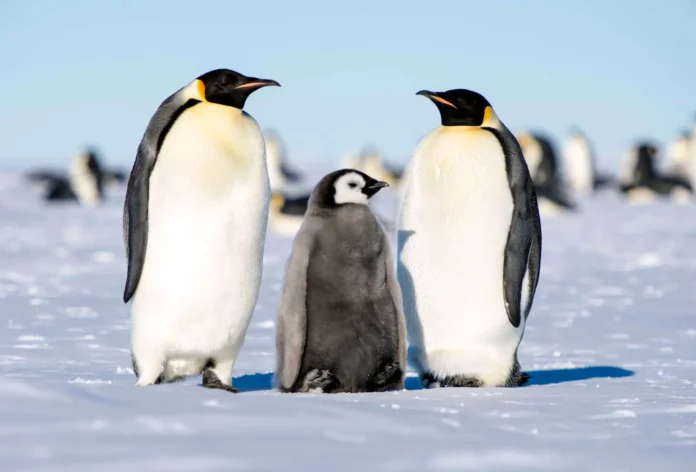I just want to give some credit to amazing animal dads that look after their babies out there. Some of you probably already know that many male animals are very caring and loving with their young. We are going to discuss these awesome animal dads today, and their actions are so heart-warming to see. Wonder what they are? Let’s check out the list below, don’t forget to let me know which dad you think is the most admirable.
1African Wild Dog
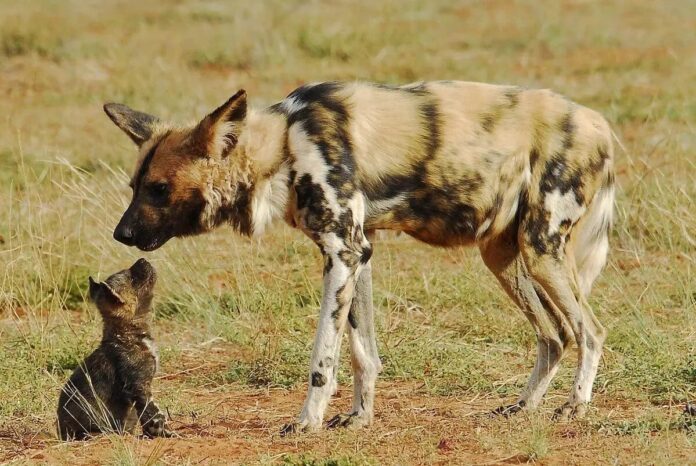
Looking adorable and tough, the African wild dogs are one of the most fascinating animals on the continent. African wild dog pups are extremely active, but they are unable to eat solid food in the first 10 weeks. This is when daddy comes to the rescue, to swallow the pups’ food and regurgitate the softer version. By doing so, the pups still get to receive nutrients from the meal without having to chew at all. Feeding is not the only role that African wild dog dads have, they also babysit the pup as well. The father also keeps all the pups at home so that they won’t wander far away and fall prey to enemies. When you see healthy and strong African wild dogs, you know their dads take great care of them as pups.
2Arowana

Not every fish is a great dad, and this is why Arowana stands out among the others. After mating, the male Arowana builds a nest for his young so that the female can lay her eggs. Then he will protect the babies from all potential predators after they hatched. Another thing that these fish dads are famous for is their incredible mouthbrooding ability. An Arowana father can harbor and incubate hundreds of baby fish inside his mouth. This is the act of special care to keep all of his tiny babies safe during their first life stage. He does let them out occasionally so that they can explore in surrounding environments. However, he will seek each one of them and suck them back into his mouth to protect them. If you look for the most protective animal dads, Arowana is the one.
3Emperor Penguin
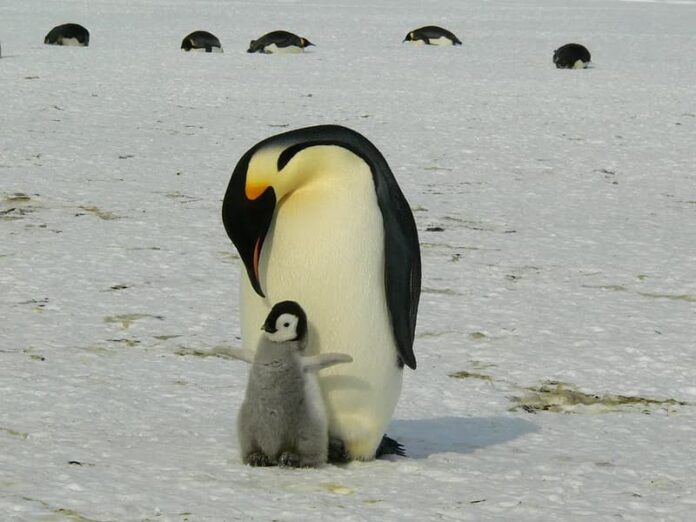
All penguins are amazing parents, but the Emperor penguins receive the most recognizable reputation for being awesome animal dads and moms. The moms spend all of their energy carrying and laying the egg, so the rest of the duties go to the dads. After delivering the egg, the moms must set out to sea to feed for two months. During those two months, the dads do all the job to make sure that the eggs are healthy and safe. A penguin dad keeps the egg warm by carefully balancing it between the top of his toes and belly. He takes this important responsibility so seriously that he does not eat or move for the entire two months. This is because the chick will not survive if the egg is exposed to the harsh Atlantic cold and wind.
Egg caring is not the only thing that he does, the responsibilities extend if the egg hatches before the mom’s return. In this case, the dad will also feed the chick with milk he produces from his esophagus! Along with that, he has to keep the little chick warm because the newborn cannot regulate its body temperature yet. To achieve this, all fathers huddle together and form a giant phalanx of dads and newborns to conserve heat. When the mom comes back, it is the dad’s turn to go to the sea to feed after fasting for two months. You know the dads do their jobs very well when you see adorable Emperor penguin babies waddling on the ice.
4Emu

Emu dads are the single dads in the bird kingdom, taking of all the eggs by themselves. After the mating season, a female lays a clutch of between 6 to 11 eggs in a nest. Then she leaves the eggs to the male to watch over and care for. The dad spends about 60 days incubating the eggs, then care for his emu chicks for up to 2 years. During those times, male emus become extra aggressive and possessive of anything around them. At the same time, they are unable to eat which leads to weight loss during the incubation period. Once the chicks hatch, the dads will teach them how to forage and survive before letting them live their lives. So if you see an emu walking with several emu chicks, that is the dad, not the mom.
5Golden Lion Tamarin
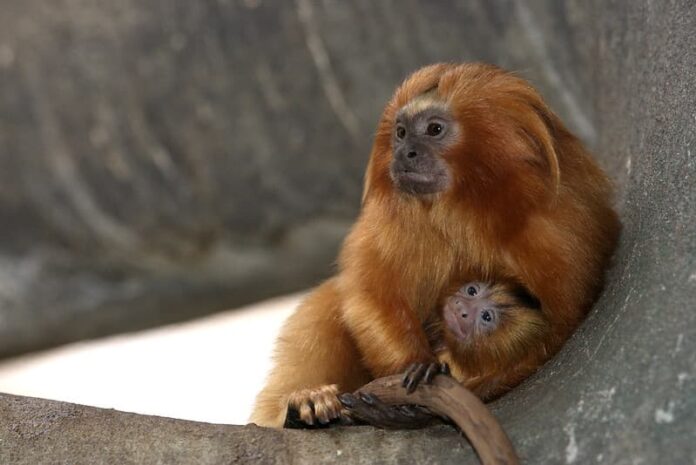
While most babies cling to their mothers, golden lion tamarin infants prefer to be on their daddy’s backs instead. A golden lion tamarin dad carries his baby on his back 24/7 during the first several weeks. This is an incredible bond, and the dad only hands the baby over to the mother every few hours. Then she will spend around 15 minutes nursing the infant before giving it back to the dad. By the 4th week, the baby begins to eat soft food and the father is there for it too. He peels and mashes bananas before hand-feeding them to his little baby. The habit lasts for up to 7 weeks until the baby becomes more independent to do things by itself.
6Lumpsucker
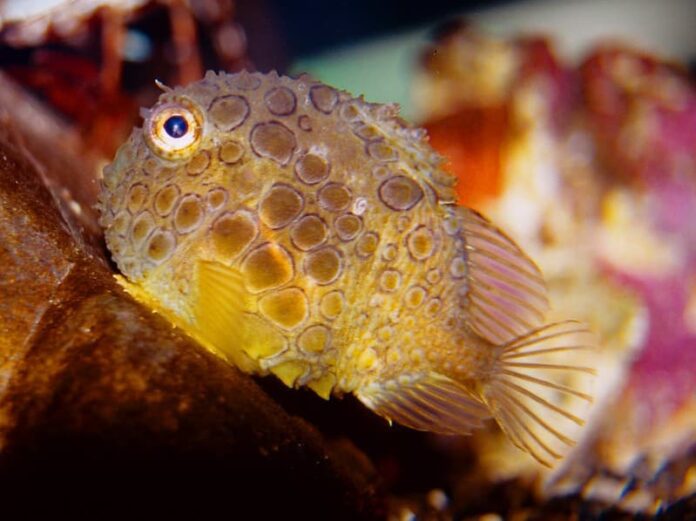
Appearance does not define a dad’s devotion, and lumpsuckers are the animals that can prove this. Lumpsucker dads are very dedicated when it comes to taking care of the brood until all the eggs hatch. To ensure the safety of the eggs, he uses his suction cups to glue himself to a surface near the eggs. Then he simply stays there and watches over his eggs from 4 to 8 weeks until they safely hatch. When the tides are in, he uses his fins or tails to keep the water circulating over all of the eggs. The only time that he leaves the egg mass is when he needs to drive off the intruders. Each nest can have up to 350,000 eggs, and the single dad will look after them all. Once the eggs hatch, the father will finally leave and the babies will fend for themselves.
7Marmoset
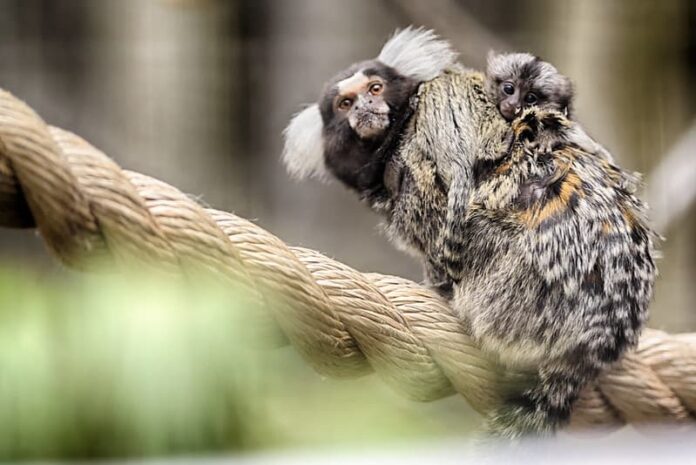
Marmosets are primates native to the forests of South America and Central America. It is so common for marmoset moms to give birth to fraternal twins due to their mating habits. Delivering twins puts a great toll on the mother because the newborns can account for over 25% of her body weight. On top of that, she can become pregnant in the next two weeks so she needs to recuperate. This is very exhausting for the mom so the dad has to take almost all the responsibilities besides providing milk. Almost immediately after birth, the marmoset dad licks and grooms the newborns to keep them clean. He cares, gives piggyback rides, and protects the twins until they are strong enough to be on their own. Not to mention marmoset dads are also midwives during the delivery, what a man!
8Pointy-Headed Frog

Most of the time, the mothers often enjoy freedom if the fathers are amazing dads in the animal kingdom. Just like this frog species, the mom leaves everything to the dad after she lays the eggs. The dad will then have to fertilize the eggs, wait for them to hatch, and care for them as they emerge. After the eggs hatch, male pointy-headed frogs transport their babies piggyback style to protect them from all potential predators. During the journey, the offspring jumps off at different points one by one until there are no more on daddy’s back. This final stage is to ensure that the babies will benefit from less food competition and lower predation pressure.
9Rhea

Rheas are often known to be the super dads in the animal kingdom due to their tremendous help. These flightless birds live in a polygamous family of one male that courts up to a dozen females in total. This sounds like a playboy, but no, the male rheas are extremely responsible dads. So sometimes one rhea dad will incubate up to over 50 eggs all by himself for up to 40 days. He builds the nest for the females to lay the eggs in, and he will take care of all of them by himself. During this time, the male will chase anything even the females away from the eggs or hatched chicks. He then proceeds to raise all the young completely on his own for 6 months, speaking of taking jobs seriously.
10Sandpiper
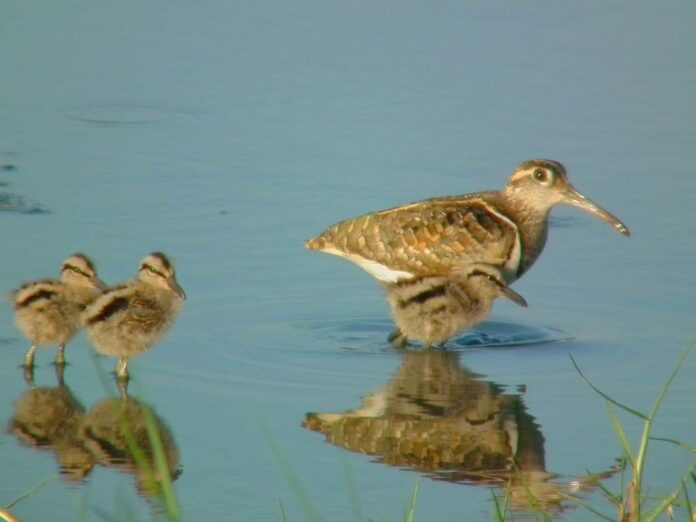
In the sandpiper’s world, the females get to have all the fun while the males get all the work. First of all, female sandpipers are much larger than males and they mate with several males. After mating, a female sandpiper lays up to 4 eggs in a ground nest for one of her mates to care for. Then she leaves for more fun with other males that she will come across. As for the male sandpiper, he has the responsibility of caring for and incubating the eggs. After that, he tends to the young for at least 4 weeks until they hatch. Then and only then, he finally gets to move on.
11Seahorse
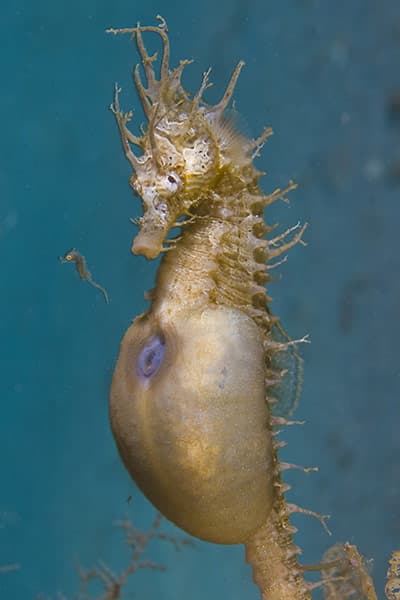
Everybody knows that seahorses are among the best animal dads in the world, and the title remains for so many reasons. Male seahorses are the only species in the animal kingdom that can become pregnant and carry babies. The mom deposits her eggs into the male seahorse’s pouch, then he fertilizes and incubates them for between 20 to 45 days. When labor day comes, the dad delivers tiny seahorses at night by shooting them out from his pouch. It is not one or two babies, it is anywhere between 50 to 1500 eggs at a time. You can never imagine this, ever. At least the mom visits him every morning during the gestation period for several minutes for their greeting ritual. If carrying the babies and delivering them do not make seahorses the best animal dads, I don’t know what does.
12Water Bug
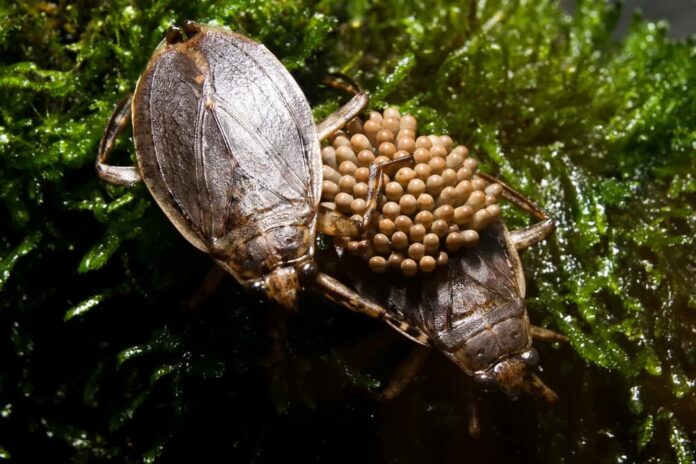
This image can give you anxiety, but it is just a giant water bug dad carrying his children. Looking gross to some, this is actually the dedication of paternal care that this bug has for his babies. After mating in the late spring to early summer, the female water bug lays eggs on grass stems above the water’s surface. The male remains near the eggs for their 2 weeks gestation period, keeping them hydrated. If he detects a threat, he will gather the eggs on his own back and swim away for protection. A giant water bug dad carries eggs on his wings and takes them everywhere he goes until they hatch. The father can be extra aggressive during the egg-carrying period in order to protect his eggs. He can deliver one of the most painful bites to keep himself and his eggs safe.
Related Post: Monogamous Animals That Mate For Life


